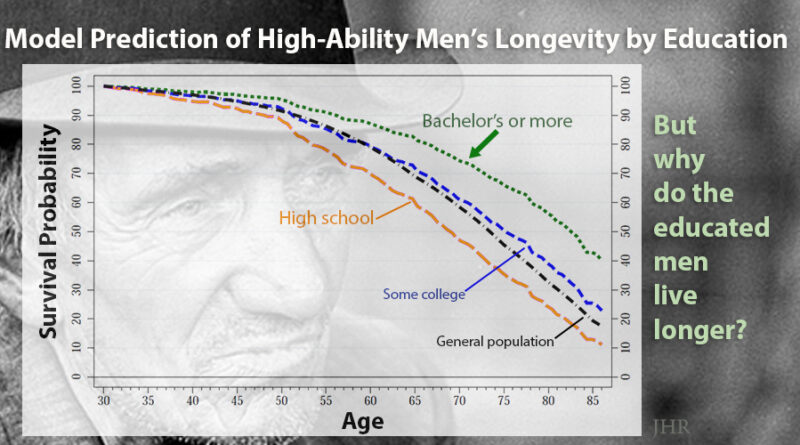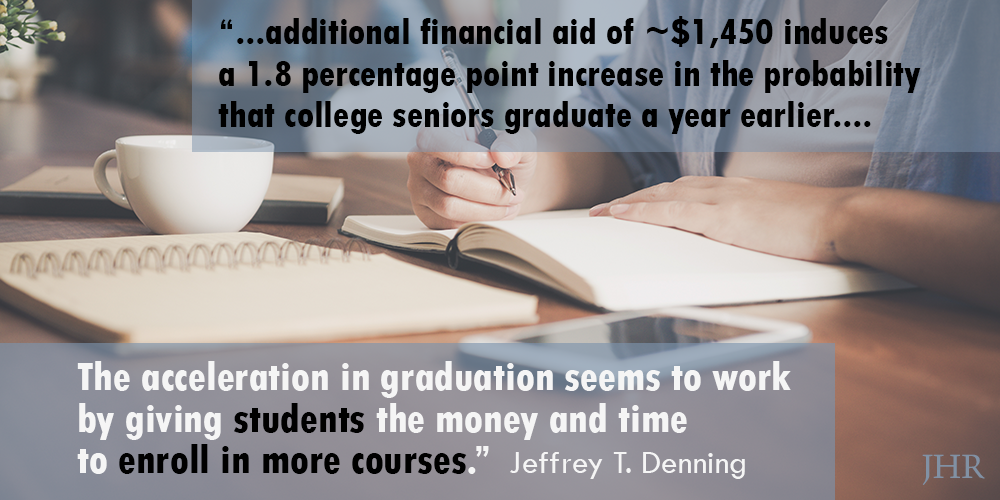Living Longer? Personality, Education, and Realized Human Potential Helps
Does education extend lives? This is still debated because more educated people generally differ from less educated people in many respects that can affect longevity: IQ, noncognitive skills, family wealth, and so on. Also, if education does extend lives, is it equally helpful to people with higher IQs as it is to those with lower IQs? And does education help people not only live longer but also stay healthier?
Peter A. Savelyev (William & Mary) takes advantage of the unique Terman study of high-ability people from California born around 1910. The study followed participants from around age 12 for about 70 years.
Taking advantage of early-life measurements of IQ, personality, and detailed family background variables, and using state-of-the-art statistical methods to account for unobserved influences, Savelyev finds a strong effect of college education on longevity for high-ability men. Compared to those completing only high school, they gained about ten additional years of life.
Previous research suggests that education only improves health for those with low IQs, as high-IQ people are smart enough to stay healthy even having a low level of education. In contrast to this previous research, Savelyev finds that education is strongly beneficial even for people with the highest level of ability. The author suggests a new mechanism that explains linking education to health and longevity, which he calls “human potential–education matching.” In short, less educated high-ability men are unhappy and tend to neglect their health. As shown in the figure, high-ability men with a high school degree live shorter lives than the general population of men born in 1910 even though the high-ability men are smarter and better educated (on average).
A key lesson is that it is important for education level to match human potential not only for productivity reasons, but also for better health and happiness.
Savelyev also finds that two noncognitive skills, conscientiousness and extraversion, are strong determinants of the health and longevity of high-ability men, even though the effects of these traits on education are, at best, weak. The author also informs the debate about whether greater longevity comes with superior health. He finds that superior noncognitive skills and education help people to both stay healthy and live longer.
By contrast to men, for women in this historical group who live at least as long as college-educated men, the researcher finds no evidence of a relationship between education, noncognitive skills, and longevity.
Read the study in the Journal of Human Resources: “Conscientiousness, Extraversion, College Education, and Longevity of High-Ability Individuals” by Peter A. Savelyev.
***
Peter A. Savelyev (@savelyev_a) is an Assistant Professor at the College of William & Mary.



